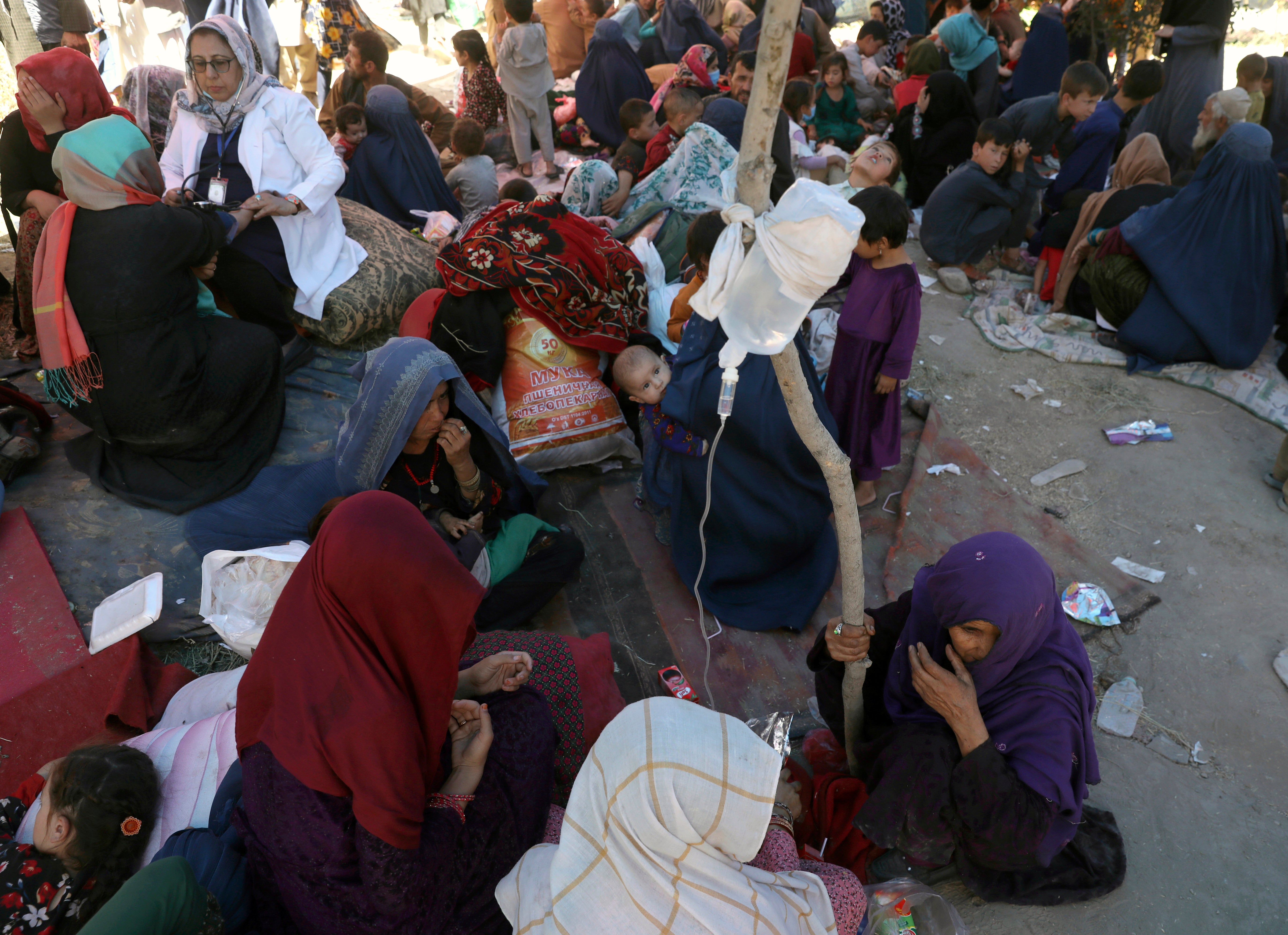Six EU nations want migrants forced back to Afghanistan
Six European Union countries want the forced deportation of migrants back to Afghanistan to continue despite the government in Kabul suspending such “non-voluntary returns.”

Your support helps us to tell the story
From reproductive rights to climate change to Big Tech, The Independent is on the ground when the story is developing. Whether it's investigating the financials of Elon Musk's pro-Trump PAC or producing our latest documentary, 'The A Word', which shines a light on the American women fighting for reproductive rights, we know how important it is to parse out the facts from the messaging.
At such a critical moment in US history, we need reporters on the ground. Your donation allows us to keep sending journalists to speak to both sides of the story.
The Independent is trusted by Americans across the entire political spectrum. And unlike many other quality news outlets, we choose not to lock Americans out of our reporting and analysis with paywalls. We believe quality journalism should be available to everyone, paid for by those who can afford it.
Your support makes all the difference.Six European Union member countries insist that the forced deportation of migrants back to Afghanistan where Taliban insurgents have made sweeping gains in recent weeks, must continue despite the government in Kabul suspending such “non-voluntary returns” for three months.
In a letter dated Aug. 5, the interior ministers of Austria Belgium Denmark, Germany, Greece and the Netherlands urged the EU’s executive branch to “intensify talks” with the Afghan government to ensure that the deportations of refugees would continue.
“We would like to highlight the urgent need to perform returns, both voluntary and non-voluntary, to Afghanistan,” the ministers wrote to the European Commission. “Stopping returns sends the wrong signal and is likely to motivate even more Afghan citizens to leave their home for the EU.”
The commission confirmed Tuesday that it had received the letter and would reply when ready. Asked whether Afghanistan is a safe place to forcibly send people, spokesman Adalbert Jahnz said: “It is up to each (EU) member state to make an individual assessment of whether a return is possible.”
Emboldened by the Biden administration’s decision to pull American troops out of Afghanistan and end NATO’s troop training mission in Afghanistan, Taliban insurgents have captured five out of the country's 34 provincial capitals in less than a week.
Afghan security forces, which have been backed, trained and financed with billions of dollars in a 20-year-long Western military effort that included many EU countries, appear unable to cope with the offensive.
But despite the success of the insurgent blitz and few signs that the long-stalled peace talks between the Taliban and the Kabul government will resume soon, Europe is not facing any imminent threat of a major influx of Afghan migrants, a senior EU official said.
“We’re nowhere near a migratory crisis,” the official said, under customary condition of anonymity. But he acknowledged “a humanitarian drama” was unfolding as the fighting forces people from their homes and that up to half a million Afghan people could flee to neighboring countries.
“Given the context, it is hard to imagine that we would conduct forced return operations for the moment,” the official said. He said that around 1,200 Afghans have been deported from EU nations this year, and that most went willingly while 200 were forced to go.
The head of the International Organization for Migration, Antonio Vitorino, said in a statement Tuesday that he was “extremely concerned by the deteriorating situation in Afghanistan – particularly the impact on mobile and displaced populations, including returnees.”
“The last few days have seen a deadly escalation of fighting in Helmand, Kandahar, Herat, Kunduz and Nimroz provinces, adding untold suffering in a country where over 5 million people are already displaced internally,” Vitorino said.
He warned that Afghanistan is “in the throes of a third wave of COVID-19 and a severe drought,” leaving almost half the population in need of emergency aid.
___
Follow AP's migration coverage at https://apnews.com/hub/migration